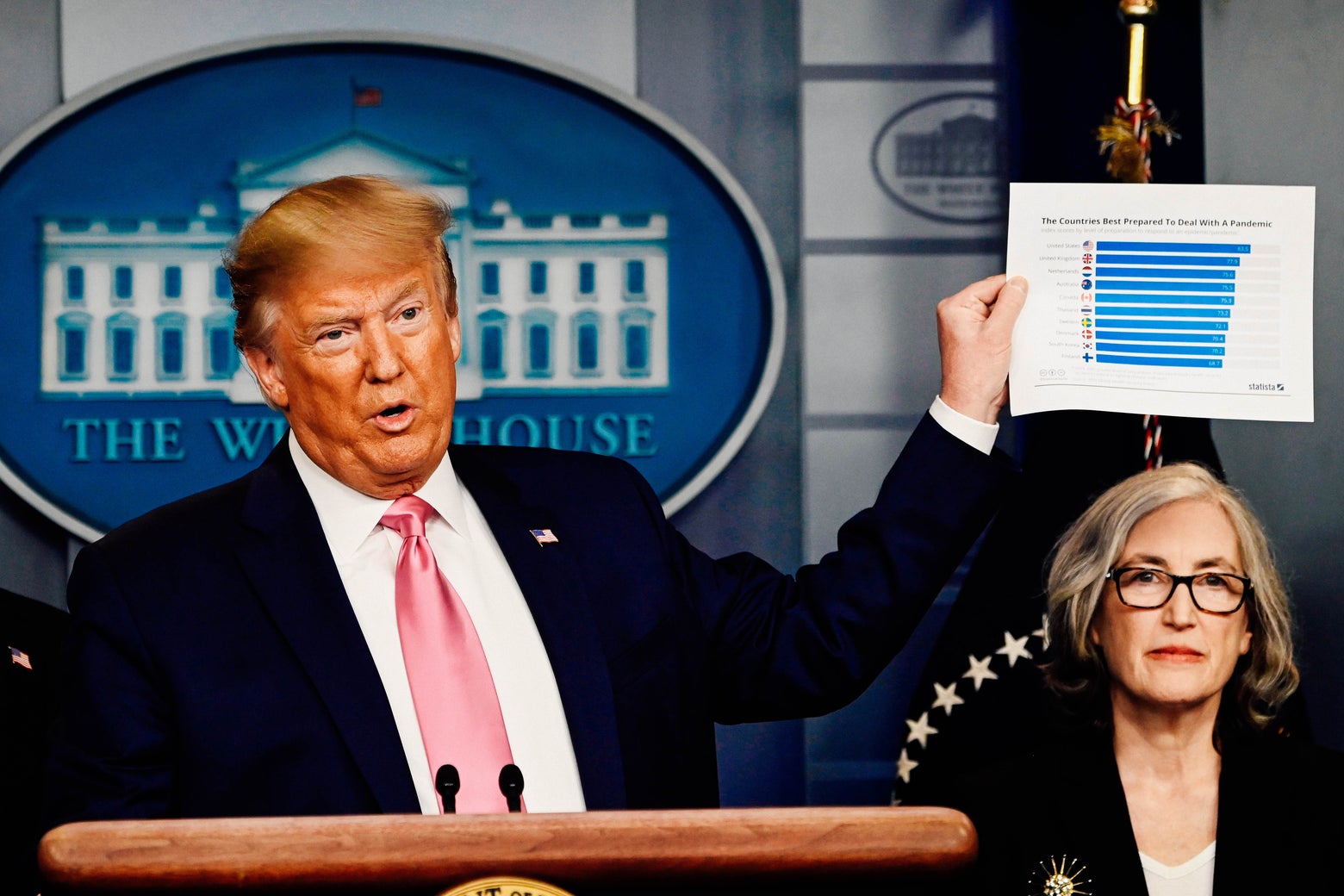We don't know exactly how much they hid and for how long, but likely it was only a bit and only for a few weeks.Pity you don't condemn China with the same amount of rage.
Unlike Trump.
Jan. 3, 2020: Doctors in China inform Robert Redfield, the director of the Centers for Disease Control and Prevention, that a new coronavirus might be responsible for recent pneumonia cases in China. Redfield tells Alex Azar, the secretary of Health and Human Services. Azar’s office informs the National Security Council.
Early January: Intelligence briefers put a “detailed explanation of the problem … in the President’s Daily Brief.” The explanation focuses on “troubling signs of a new virus spreading through the Chinese city of Wuhan, and the Chinese government’s apparent efforts to conceal details of the outbreak.”
Jan. 9: At a campaign rally in Toledo, Ohio, Trump boasts that he’s about to sign a lucrative trade deal with China: “a big, beautiful monster—$40 [billion] to $50 billion to our farmers.”
Jan. 10: Trump tells Fox News that he’s angling for a second trade deal with Xi. “We have a great relationship with China right now, so I don’t want to speak badly of anyone,” he says. He deflects a question about China’s human rights violations, explaining, “I’m riding a fine line because we’re making … great trade deals.”
Jan. 13: The World Health Organization reports that the virus has spread beyond China.
Jan. 14: At a rally in Milwaukee, Trump says he’s about to sign the “trade deal with China, massively boosting exports of products made and produced right here in the great state of Wisconsin.”
Jan. 15: Trump signs the deal and praises Xi. “250 Billion Dollars will be coming back to our Country,” he tweets. “We are now in a great position for a Phase Two start.”
Jan. 16: Around this date, according to Politico, Azar “tried to share an urgent message with the president: The potential outbreak could leave tens of thousands of Americans sickened and many dead.” Politico says that according to “three people briefed on the conversations,” “Trump’s aides mocked and belittled Azar as alarmist, as he warned the president of a major threat to public health.”
Jan. 17: In a CDC briefing, Nancy Messonnier, the director of the National Center for Immunization and Respiratory Diseases, predicts that as more countries test for the virus, “We’re going to see additional cases all around the world.”
Jan. 18: Azar phones Trump to talk about the virus. Multiple accounts of the call say that Trump “insisted on talking about e-cigarettes” before discussing the virus. The Wall Street Journal, citing officials who were briefed on the call, reports that Trump “dismissed coronavirus concerns as alarmist.”
Jan. 19–20: China’s chief health investigator publicly reports multiple cases that show the virus is spreading from human to human.
Jan. 21: The CDC reports the first documented infection in the United States. The agency also acknowledges “growing indications that limited person-to-person spread is happening.” Anthony Fauci, the director of the National Institute of Allergy and Infectious Diseases, tells Voice of America that the virus has been found to spread with high efficiency—“one person in China infected 15 others”—and that cases have been detected in Thailand, Japan, South Korea, and France. “Clearly, it’s starting to disseminate in a much wider way,” he warns.
Jan. 22: Trump says the CDC has briefed him and “China is in very good shape.” In a CNBC interview, Joe Kernen asks the president, “Are there worries about a pandemic”? “No, not at all,” says Trump. “We have it totally under control.” Kernen asks about reports that Beijing is hiding information: “Do you trust that we’re going to know everything we need to know from China?” Trump replies: “I do. I have a great relationship with President Xi. We just signed probably the biggest deal ever made.” He says he’ll begin talks on a second deal with China “very soon.”
Jan. 22–23: China shuts down Wuhan. This drastic response alarms the White House. On Jan. 23, national security adviser Robert O’Brien, joined by a CIA analyst, briefs Trump on the virus. In this briefing, according to a White House official who speaks later to NPR, Trump “was told that the coronavirus was potentially going to ‘spread globally.’ ” The Washington Post reports that during this time frame, “Trump’s advisers told him that Beijing was not providing accurate numbers of people who were infected or who had died.”

How Trump Lied About China and the Coronavirus
A chronology of what Trump said—and what he knew—in January and February.







